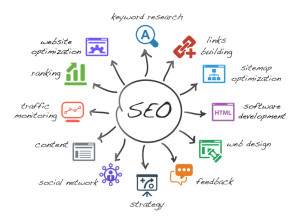A few years back, it wasn’t all that uncommon to have a simple cellphone — capable of making and receiving calls and texting. Now, over half of all Americans have a smartphone, and that is largely thanks to Android. “Today [Android] claims nearly 85% of [global] market share, nearly doubling its hold over the last three years,” according to Timemagazine. And it is no coincidence that Google is one of the company’s largest contributors.
The best IT managed services and Web design companies know that they cannot do their job — and do it well — without thinking about SEO, mobile marketing, and Google nearly every step of the way.
